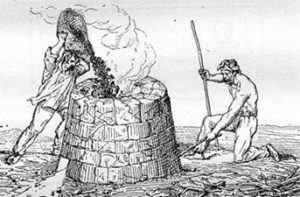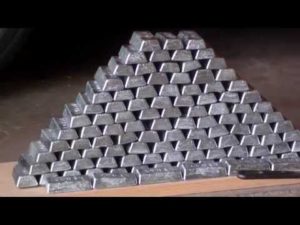A brief history of lead – 1 of 3 parts
Part 1 – A brief history of lead production
Part 2 – A brief history of the uses of lead
Part 3 – Modern production methods
Lead’s use as a material has a long history that goes back to before Roman times. It is one of the most durable metals used in construction with evidence showing that it can perform satisfactorily for well over 100 years.

Lead production
Humans have been using lead in one form or another since ancient times. Simple lead smelting furnaces have been unearthed in many parts of the world dating back to 600BC and references to its use even make appearances in the Old Testament.
Smelting lead from its ore is a simple process requiring little more than a fire with the ability to collect the molten metal. Early settlers in America placed the raw ore (galena) into fires and simply collected the solidified metal from the ashes after it had separated from the ore.

The technology involved hardly changed until the industrial revolution when a more efficient method was required. Simple smelting methods can be inefficient making exploiting only the richest ores worthwhile as a third of the metal from the ore is lost to fumes and slag. Debris and impurities mixed in with the molten metal settle out on the surface as slag rendering it useless as a quality material.
As with many early industries the waste products were discarded around the work sites. The high lead content of the waste material, combined with sulphur dioxide produced during smelting the lead caused considerable damage and poisoning of the vegetation and soil around the work sites. Using more efficient, modern smelting techniques some of this early waste material can now be used as a source of lead as it still contains such high levels of the metal.

The next part will be a brief history of the uses of lead.


